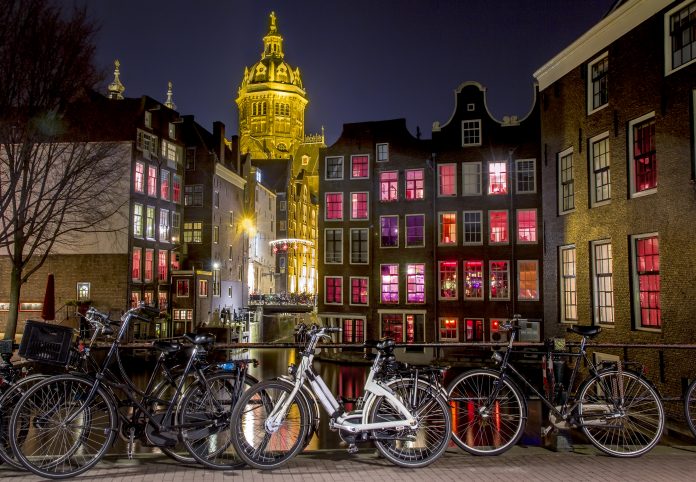With more people travelling than ever before, the hospitality industry faces an increasingly diverse range of clients, innovation key for hospitality
For hospitality brands to attract and retain customers, offering different experiences to meet the different needs and expectations of guests will be key – whether that means time-saving technology for business travellers, human personalisation and bespoke service for luxury guests, or social experiences and new concepts for an upcoming generation of Millennials.
The Millennial quest for experiences
A study conducted by Harris Poll and Eventbrite found that 78% of Millennials prefer to spend their money on experiences rather than things; among Boomers, that figure drops to 59%. Within travel and tourism, the shift to experiences has given rise to disruptive business models as travellers seek the authenticity of local experiences instead of the accommodation and activities typically designed with tourists in mind.
Peer-to-peer accommodation platforms such as Airbnb and HomeAway are among the most well-known, while Airbnb has developed its Experiences offering, which connects travellers with local guides for activities ranging from the culinary and cultural to the adventurous and sporty.
The peer-to-peer business travel market has not been overlooked either: Airbnb for Work offers self-check-in work-friendly properties for solo or group business travellers as well as team-building activities for company retreats.
But the sharing economy continues to evolve, giving rise to innovations such as Wingly, an online platform where passengers and pilots can share the costs of a private leisure flight. Thanks to a combination of technology, ingenuity and a DIY spirit, experiences once deemed exclusive are within reach for Millennial consumers.
Hotels woo young travellers with smart design and social spaces
To adapt to younger travellers’ tastes, innovative hotels are giving more priority to the social spaces and experiences they offer. Urban hotels like Mama Shelter, The Hoxton, CitizenM and 25hours hotels offer locations in vibrant neighbourhoods as well as spaces and activities that can appeal to locals and travellers alike.
Rooftop bars, restaurants serving locally sourced ingredients, co-working hubs, yoga and Pilates classes, film screenings and dance parties are just some of the activities and spaces for travellers.
Such hotels represent a new kind of affordable luxury that resonates with Millennial values. Their approach also holds appeal for Gen Z travellers – putting high value on social experiences and design, this next generation of consumers is even more willing to accept smaller personal living spaces in exchange for aesthetics and vibrant shared spaces.
The success of micro-hotels such as Pod Hotels, The Jane Hotel and Arlo Hotels confirms this paradigm shift. Connectivity, both social and technological, is also key to catering to younger travellers, for whom online sharing is often a natural extension of offline experiences.
Socially responsible travellers search for like-minded businesses
If Millennials have played a key role in bringing issues of sustainability to the foreground, then Gen Z is likely to take the conversation even further. Cone Communications has reported that 94% of Gen Z consumers believe companies should address urgent social and environmental issues, compared to 87% of Millennials.
As a result, businesses are facing growing pressure to support sustainable practices – particularly in the hospitality industry, where the social and environmental impacts of companies can be enormous.
Brands such as Six Senses and 1 Hotels are leading the way in making sustainability a core part of their identity. With these brands, the wastefulness that has sometimes been associated with luxury is replaced with eco-friendly measures and socially responsible policies. Environmental initiatives supported by Six Senses include growing organic produce for guests and bottling water in glass on site to eliminate the use of plastic.
The brand also partners with local NGOs to sponsor community projects in areas like education, healthcare and disaster relief. At 1 Hotels, eco-friendly efficiency is complemented by nature-inspired design and the use of reclaimed materials, and the brand offers staff paid time off to volunteer in environmental advocacy and public education activities.
Meanwhile, locally-sourced food and beverage options and organic ingredients not only offer an authentic dining experience, but also appeal to young consumers’ sense of ethics. As public awareness of food waste, plastic pollution and other environmental problems grows, young consumers are more critical of wasteful and irresponsible practices – opening opportunities for businesses that can provide sustainable alternatives.
Technology, personalisation and experience 2.0
With tech-savvy Millennials closely followed by a generation of digital natives, technological innovation will continue to shape the hospitality industry. From chatbots and robots to internet-of-things connectivity, smart uses of technology will save time, offer greater personalisation and enable businesses to anticipate guest needs.
The benefits of convenience and discretion are particularly relevant for business travellers, who value privacy and time-saving service. And although privacy concerns do exist, many customers are willing to entrust brands with some data in exchange for the benefits of convenience and personalised service.
Technology is also an opportunity for brands to flex their creativity, bridge online and offline channels and deliver a better customer experience. In China, leading ride-sharing app Didi has developed an augmented reality (AR) feature that helps passengers navigate their way through shopping centres and train stations to find their ride’s precise pick-up location.
Meanwhile, virtual reality (VR) can enable users to “travel” from home as they experience the sights and sounds of a faraway destination. Visitors to the iFly KLM 360° online platform can virtually visit a Thai jungle, Hawaii and other KLM destinations through a series of 360-degree videos using a smartphone, tablet or VR headset.
Yet despite the rise of new technologies, one trend that is unlikely to disappear is the value of the human touch in building customer relationships. From the hotel concierge who remembers a guest from a previous stay to the personal guide who reveals the secret corners of a city, human interaction remains core to the hospitality industry.
Dr Christine Demen Meier
Clinical Professor in Entrepreneurship
Glion Institute of Higher Education
Marie-France Derderian
Senior Lecturer and Director of the MSc in Hospitality, Entrepreneurship and Innovation











